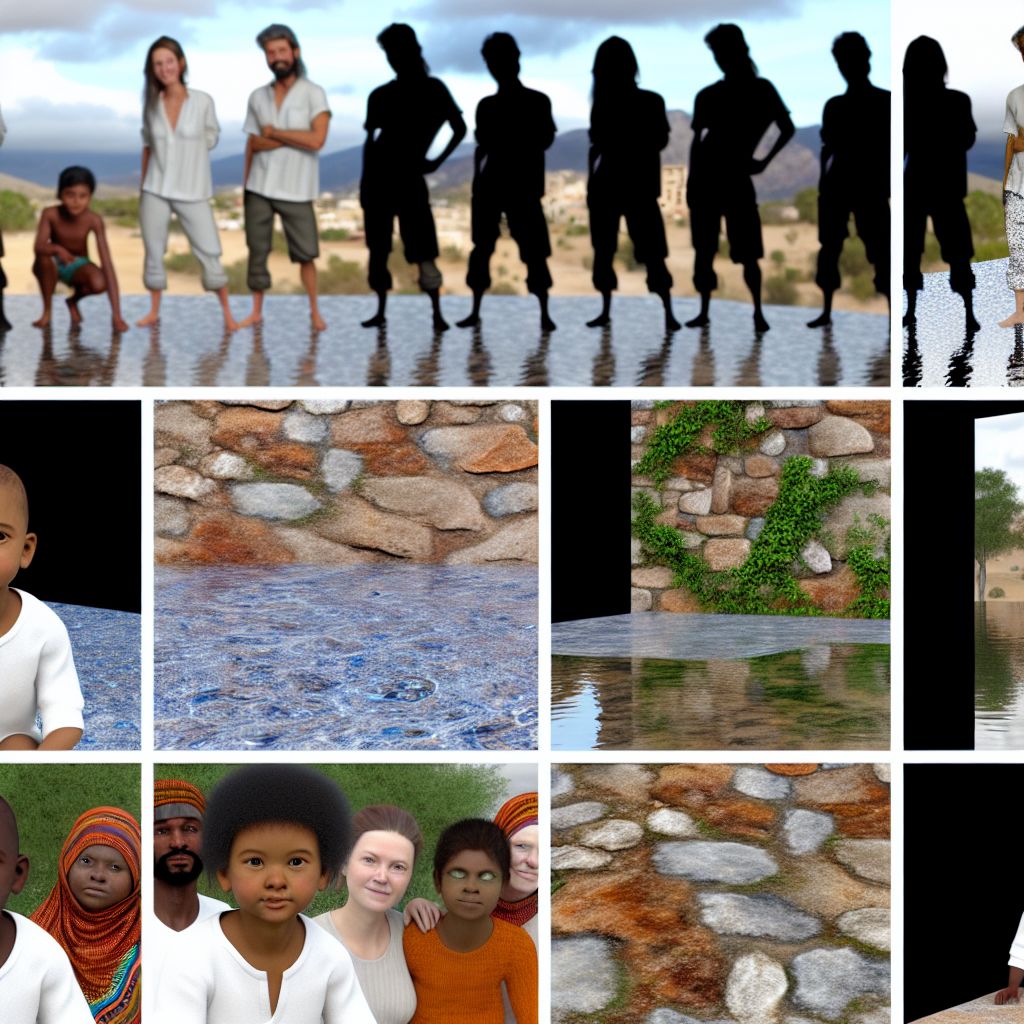Deutsch: Grundwasser / Español: Agua Subterránea / Português: Água Subterrânea / Français: Eau Souterraine / Italiano: Acqua Sotterranea
Ground Water is the water under the surface of the earth that is found within the Pore spaces and cracks between the Particles of soil, sand, gravel and bedrock.
In the environmental context, groundwater refers to the water that is found beneath the Earth's surface in soil pore spaces and in the fractures of Rock formations. It is a critical Component of the planet's water cycle and a crucial source of Freshwater for agricultural, industrial, and domestic use. Groundwater plays a vital role in sustaining ecosystems, maintaining river flows, and supporting human populations, especially in areas where surface water is scarce.
Description

Groundwater is recharged from, and eventually flows to, the surface naturally; natural discharge often occurs at springs and seeps, and can form oases or wetlands. It is also often withdrawn for agricultural, municipal, and industrial use by constructing and operating extraction wells.
Application Areas
- Drinking Water Supply: Many communities rely on groundwater for their primary water source.
- Agriculture: It is used for irrigation in many agricultural regions around the world.
- Industrial Use: Groundwater is used in various industrial processes and as cooling water for power plants.
Well-Known Examples
- The Ogallala Aquifer: One of the world's largest aquifers, located beneath the Great Plains in the United States, supplying agricultural and drinking water to several states.
- Artesian Wells: Wells drilled into confined aquifers where the water is under pressure, allowing it to rise above the level of the aquifer without pumping.
Weblinks
- umweltdatenbank.de: 'Grundwasser' im Lexikon der umweltdatenbank.de (German)
Summary
In the environmental context, groundwater is a vital natural resource that provides a significant portion of the world's freshwater supply. Its management is crucial for sustaining human activities and natural ecosystems, especially in regions with limited surface water. Protecting groundwater from pollution and over-extraction is essential for ensuring its availability for future generations.
--
Related Articles to the term 'Groundwater' | |
| 'Hydrosphere' at maritime-glossary.com | ■■■■■■■■■■ |
| Hydrosphere in the maritime context refers to the collective mass of water found on, under, and over . . . Read More | |
| 'Water table' | ■■■■■■ |
| Water table: The water table in the environmental context refers to the upper surface of the zone of . . . Read More | |
| 'Aquifer' | ■■■■■ |
| An Aquifer is an underground geological formation, or group of formations, containing water. They are . . . Read More | |
| 'Rainfall' | ■■■■■ |
| Rainfall refers to the precipitation of water from the atmosphere in the form of rain. It is a critical . . . Read More | |
| 'Biosphere' | ■■■■ |
| Biosphere: A biosphere is (1) the part of the earth and its atmosphere in which living organisms exist . . . Read More | |
| 'Pore' | ■■■■ |
| A Pore is an open space in rocks and soils . . . Read More | |
| 'Geology' | ■■■■ |
| Geology is the scientific study of the Earth’s structure, materials, processes, and history. In the . . . Read More | |
| 'Rain' | ■■■■ |
| Rain is liquid water in the form of droplets that have condensed from atmospheric water vapor and then . . . Read More | |
| 'Riverbed' | ■■■■ |
| Riverbed in the environmental context refers to the floor or bottom of a river channel where the water . . . Read More | |
| 'Rock' | ■■■■ |
| Rock refers to a naturally occurring solid mass composed of minerals, mineraloids, or organic materials. . . . Read More | |
